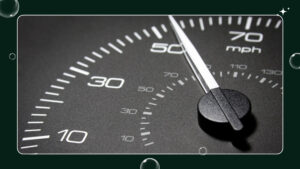
13 Causes of Poor Gas Mileage (Improved Fuel Economy)
If your car’s gas mileage has suddenly become terrible and you’re wondering, “Why is my car suddenly guzzling so much gas?” you’re not alone. With today’s gas prices, this is probably a bigger problem than it once was. There are a few common causes of poor gas mileage. Luckily, many of these are easy to fix so you can get back those lost miles per gallon.
Causes of High Fuel Economy
1) Excessive Idling
An often overlooked MPG killer (especially in the summer and winter) is excessive idling. Sitting in a parked car for long periods of time while waiting for someone or warming up the engine may seem harmless, but you’re literally burning 0 miles per gallon during that idle time.
Idle time here and there really does add up. It’s been said that idling uses 0.17-0.50 gallons of fuel per hour depending on the vehicle.
Contrary to popular belief, idling for more than 10 seconds burns more fuel just to keep the engine running than it takes to restart it. Unless you’re stuck in traffic, it’s best to turn off your engine if you’re idling for more than 10 seconds.
2) Excess weight (roof rack weight)
A simple cause of high fuel consumption is the weight of your vehicle being too heavy, whether that be with a lot of luggage in the trunk, a full load of people, or a roof box or trailer.
The more weight your vehicle carries, the more power your engine has to produce to move all that weight. With a roof rack, you also have to deal with additional air resistance, which also affects fuel economy.
Whenever you need more power, such as when driving or accelerating, your engine has to burn more fuel to achieve this. Therefore, you need to refill your fuel tank more frequently. Keep in mind that excess weight can lead to lower fuel economy, but it is often proportional to the performance of the car. For example, 100 pounds of extra weight on a large truck is not a big deal, but that extra weight will have a big impact on your Smart’s fuel economy.
3) Brake Grinding
If the brake pads, calipers, and other components do not completely separate from the rotor after you release the brake pedal, they will cause continuous friction and grinding as the components rub lightly against the spinning rotor. This constant friction puts more strain on the engine to maintain speed, significantly reducing fuel economy.
While driving, you will often notice a burning smell or brake dust on your tires. Causes can include stuck brake calipers, warped rotors, improper brake pads, air in the brake lines, etc.
4) Low Tire Pressure (Best Tire Pressure Gauge)
Car tires need to be inflated to the correct pressure (usually 32 PSI to 36 PSI for most cars). Everyone should own a proper tire pressure gauge. Driving a vehicle with low pressure in one or all tires increases wear and resistance on those tires. This means the engine has to work harder to compensate for the extra resistance, and more fuel must be used to power the engine. 5) Worn Tires (Low Tread Depth)
It may sound surprising, but poor tire tread can increase fuel consumption. There is less grip and traction on the road, so the engine has to work harder as the wheels lose some of their motion when accelerating. In addition, uneven tire wear (wear on the inside or outside of the tire) increases drag and reduces mileage. This is because patchy wear on the tire changes the contact patch with the road surface, creating an imbalance.
6) Dirty Air Filter
There are many reasons to have a clean air filter, but one important one is better fuel economy. When the air filter becomes clogged or dirty, less air enters the combustion chamber, causing the engine to work harder to meet the driver’s power needs.
This can also result in a less than optimal air-fuel mixture and rich driving. Therefore, remember to change your air filter at the intervals recommended by your car manufacturer. You can find this information in your vehicle’s manual.
7) Speeding too fast (car won’t accelerate)
Believe it or not, the difference between 80 mph and 70 mph means a 25% increase in fuel consumption. The two biggest factors are air resistance and gear ratios. That’s why it’s always best to stick to the speed limit or drive as close to it as possible. Otherwise, you’ll end up using more fuel than necessary.
8) Aggressive Driving
Even more important than driving above the speed limit, aggressive acceleration and braking have a huge impact on fuel economy. This type of impatient, impulsive driving can reduce fuel consumption by an astounding 33% compared to gradual, smooth acceleration and braking. If you stomp on the pedal to speed up in bursts, you’re relying too heavily on your engine’s inefficient speed and fuel consumption range.
Sudden acceleration also often requires you to brake hard to slow down before a corner or when stuck in traffic. This starts a vicious cycle that’s reminiscent of frustrating stop-and-go driving, where you’re constantly going back and forth between full throttle and hard braking. Accelerating smoothly can save you a lot of fuel, especially if there’s another red light a few blocks away.

